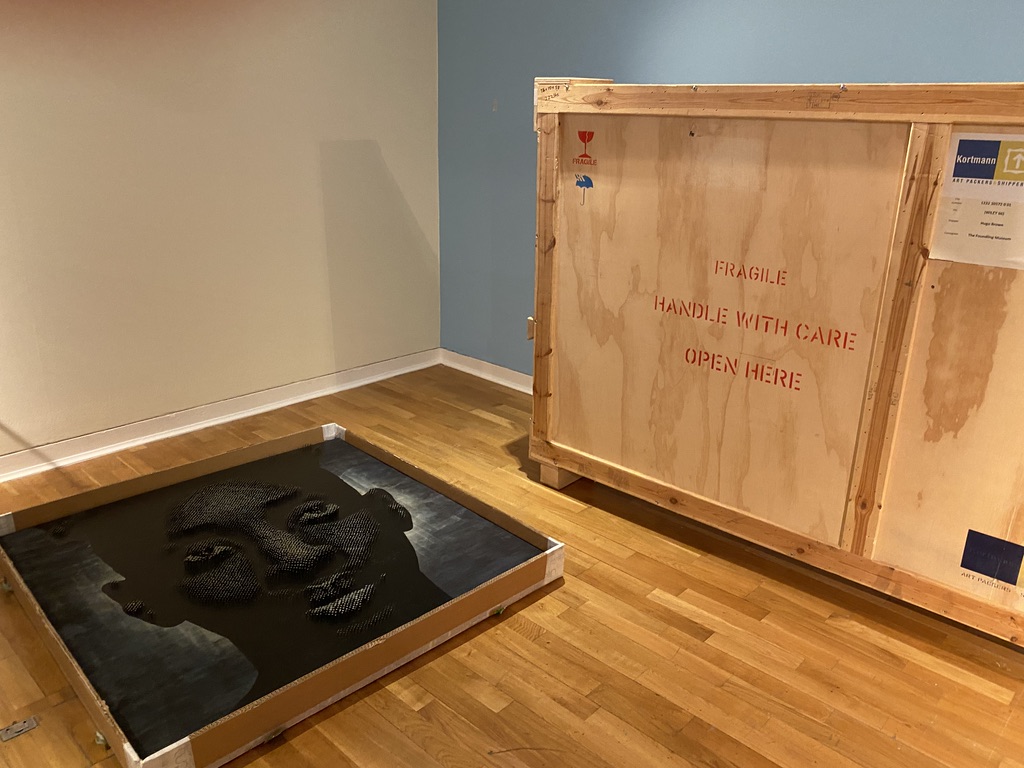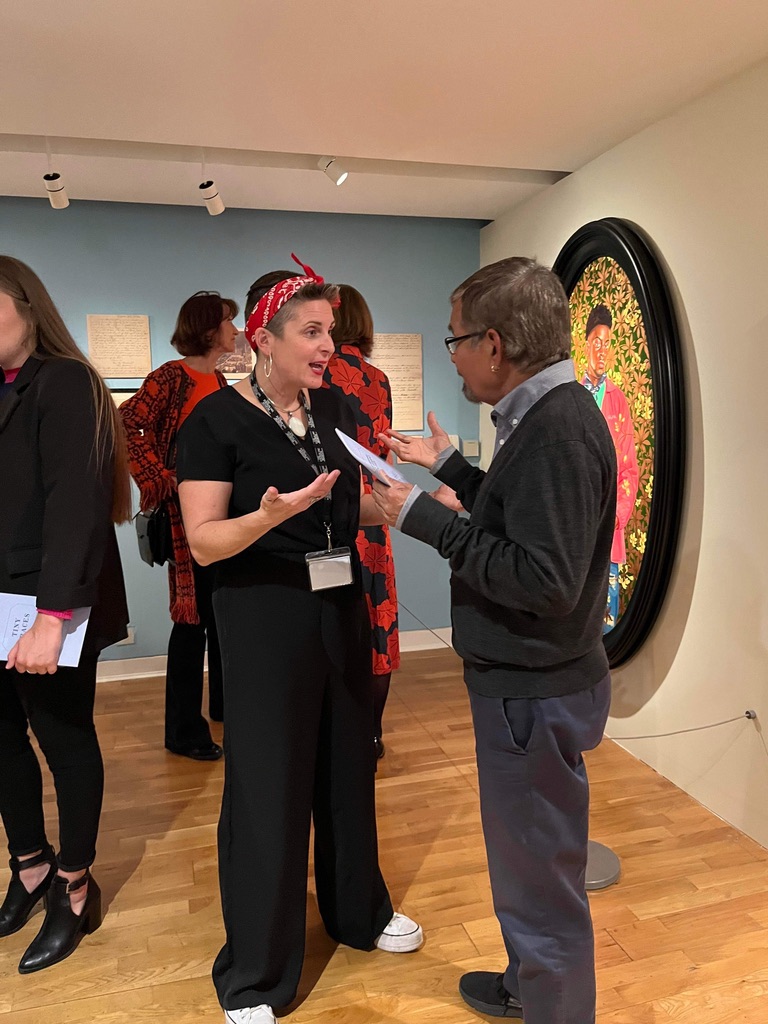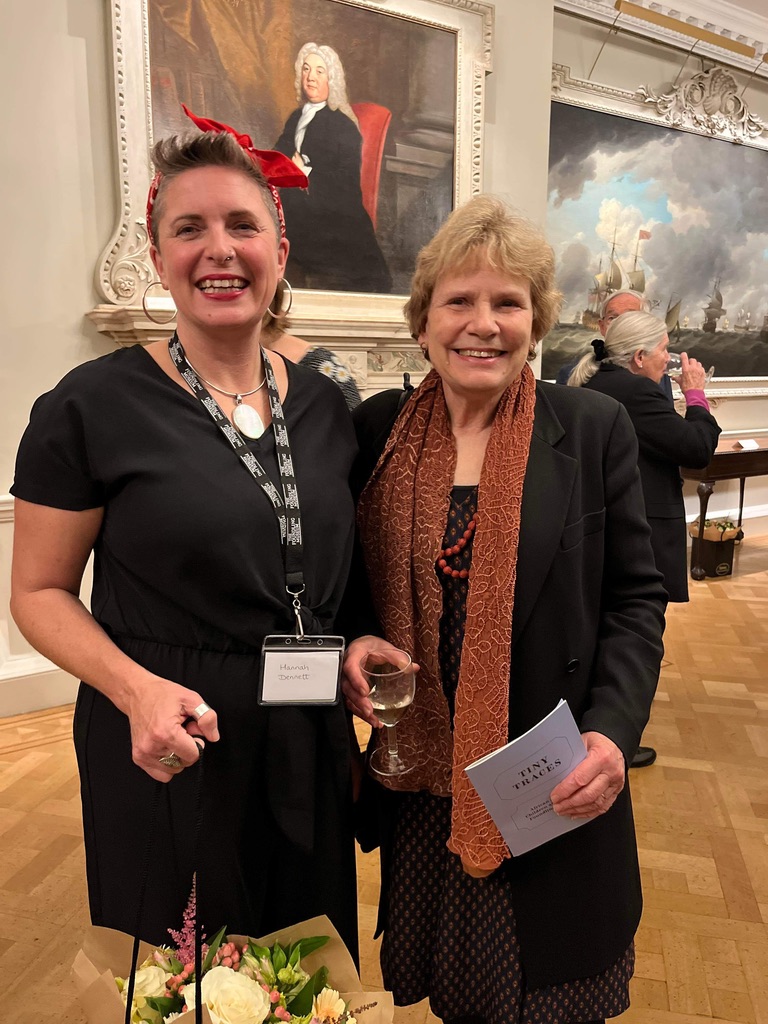Tiny Traces: African and Asian Children at London’s Foundling Hospital
Published: 10 October 2022 - Hannah Dennett
I was first attracted to my PhD project because it provided the opportunity to collaborate with the Foundling Museum, based in Brunswick Square, London. The museum tells the story of the Foundling Hospital, a charity established in 1739. Mothers who were unable or unwilling to keep their babies could seek to have their infants admitted into the philanthropic institution. There, the children were cared for, educated and eventually apprenticed to learn a trade or skill to enable them to become useful members of society. Though the Foundling Hospital governors left an extensive and comprehensive archive of documents as their legacy to today’s researchers, the museum was aware that the stories of African and Asian children were missing from the historical narrative of the Hospital. The exhibition Tiny Traces is the result of three years of collaboration with the museum, and follows the stories of more than a dozen children from the African and Asian diasporas through personal items, physical artefacts, works of art and archival documents. It also explores the circumstances surrounding their admission to the Hospital, including the parents’ lives, the Hospital’s ties to Empire and the wider picture of colonial Britain.


Figure 1. Installation of the Tiny Traces exhibition. Before (top) and after (bottom).
As a first-time curator I have a new-found respect for those who turn the idea for an exciting exhibition into reality. The time, attention to detail and physical effort needed for the planning and execution of Tiny Traces was a revelation. From identifying and selecting objects, to the creation of a film, the writing of the exhibition booklet, and the millimetre-precise measuring required for hanging the displays, staff at the museum led me through the process with patience and expertise. One of the challenges with this exhibition was that much of the material is in the form of documents. Though fascinating to most historians, numerous eighteenth-century handwritten records do not immediately lend themselves to the creation of visually engaging displays. So, we decided to approach a number of contemporary artists whose works address themes of empire and colonialism. We asked them to suggest pieces they felt would speak to the stories of the African and Asian children and their parents in the exhibition. The result is the inclusion of some stunning and thought-provoking art by artists Kehinde Wiley, Zarina Bhimji, Hew Locke, Alexis Peskine, Deborah Roberts and Shanti Panchal, which offer points of connection to human realities and emotions not easily grasped from the records.

Figure 2. Unpacking artwork Passage (Lemanja’s Tears) by Alexis Peskine for the Tiny Traces exhibition.
Overall, the experience of curating the exhibition has yielded new ways of thinking about my research and how it can be communicated so that it is accessible to a wider, more diverse audience. It has given me an amazing opportunity to learn from experts in the heritage sector, and witness the behind-the-scenes processes which lead to the creation of the exhibitions we enjoy in museums and galleries. And thank goodness for people like my dad, who insist on reading every piece of text and object label when visiting a museum, because I now realise that someone has spent hours writing them all!

Figure 3. Chatting to Shanti Panchal whose painting, Mother and Child, is part of the exhibition.

Figure 4. At the opening of the exhibition with my supervisor, Professor Maxine Berg.
Hannah Dennett is an AHRC-funded Midlands4Cities History PhD candidate whose Collaborative Doctoral Award is in partnership with the Foundling Museum, London. Her research is uncovering the lives of African and Asian children taken into the care of the Foundling Hospital in the long eighteenth-century. Based on her research, Hannah recently curated the exhibition Tiny Traces: African and Asian Children at London's Foundling Hospital, which is at the Foundling Museum until Sunday 19 February 2023.

